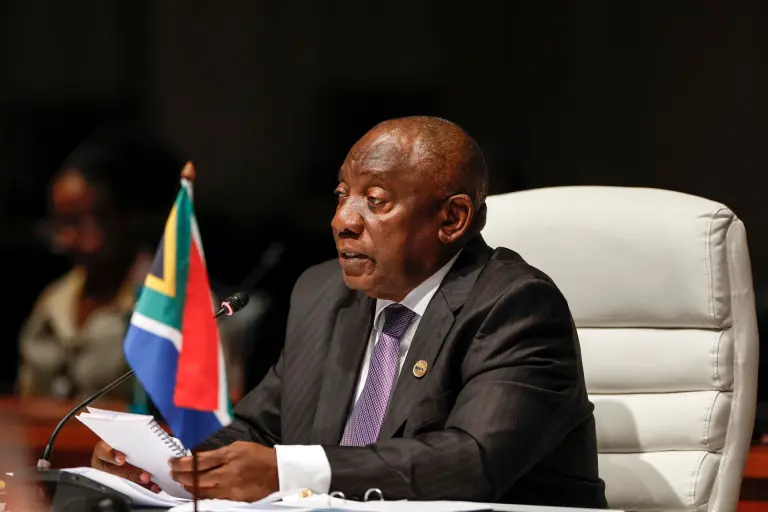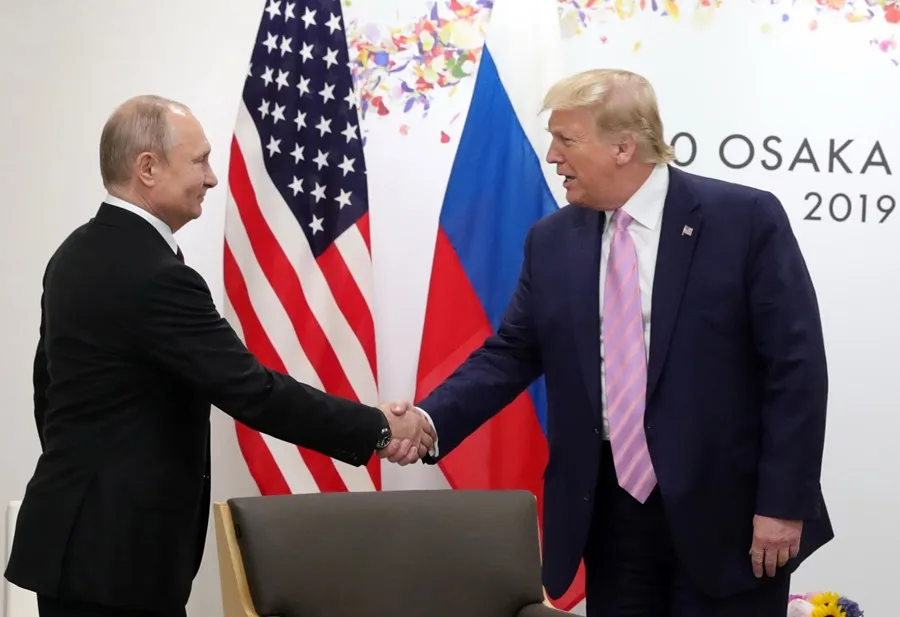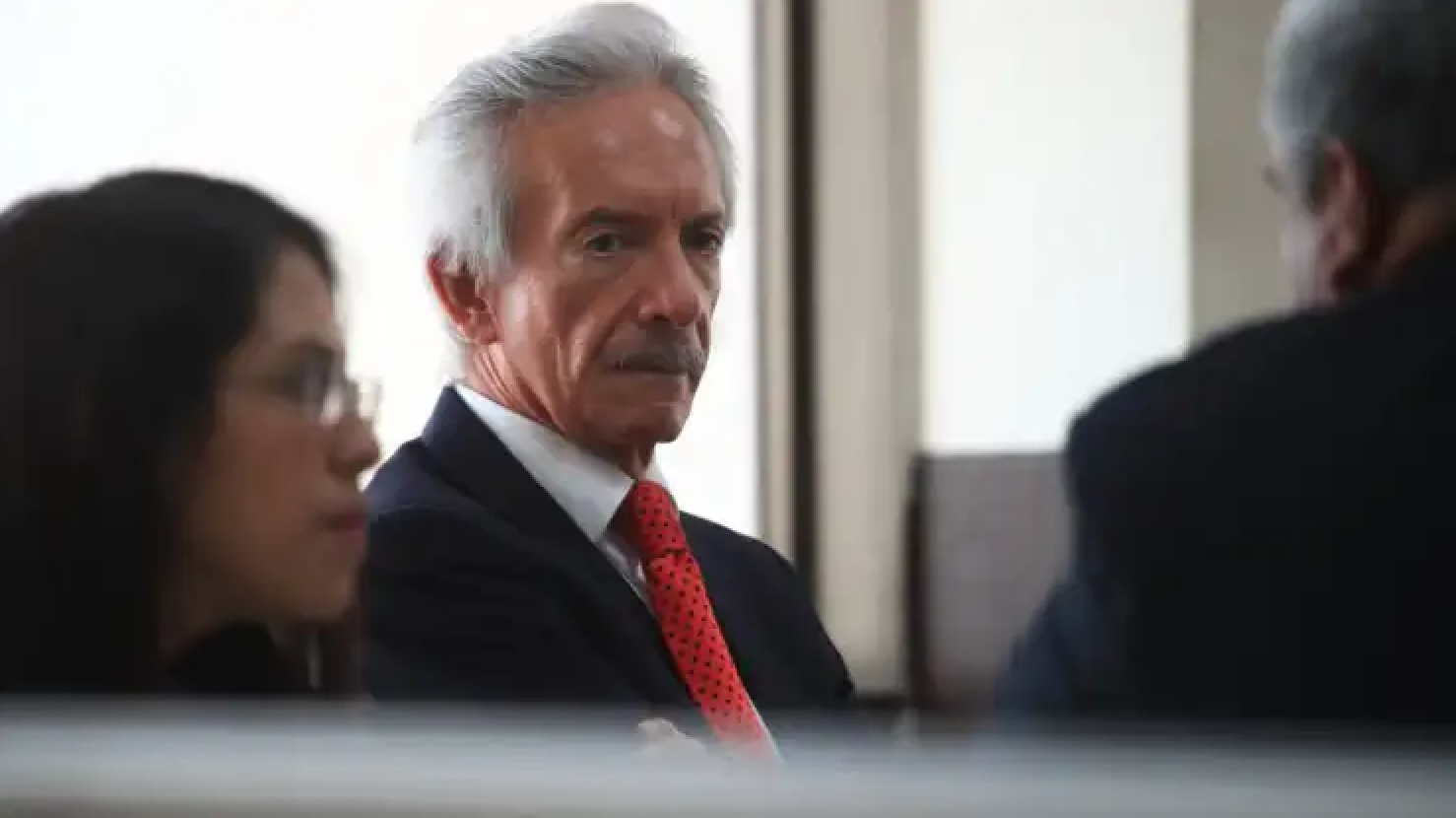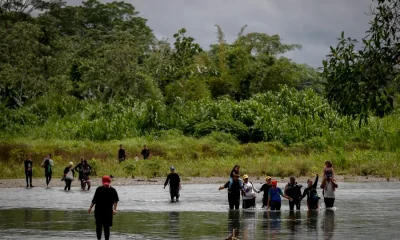International
South Africa is preparing to invest Ramaphosa for a second term as president

Cyril Ramaphosa will be inaugurated as president of South Africa for a second five-year term, in a solemn ceremony attended by about twenty African leaders and that will begin a new stage in the country’s history with an unprecedented Government of national unity.
“We have the investiture in the year in which we celebrate thirty years of freedom and democracy in our nation, which is a very important milestone,” the interim director general of Communications of the South African Government, Nomonde Mnukwa, told local media on Tuesday.
Under the slogan “Thirty years of democracy, collaboration and growth,” the event will be held at the Union Buildings, the headquarters of the Executive in Pretoria, and will be attended by 18 heads of state and government, as well as former presidents and delegations from many countries, according to the authorities.
Among the countries that will send high-level representatives are Namibia, Angola, Tanzania, Zimbabwe, Lesotho, Esuatini (former Swaziland), Uganda, Nigeria, Burundi and Egypt, but also China and Cuba, whose vice president, Salvador Mesa, has already arrived in the country.
Representatives of organizations such as the African Union (AU), the UN and the Southern African Development Community (SADC), in addition to Palestine, whose cause has historically been supported by South Africa, will also attend.
After the beginning of the day with a program of cultural events starring local artists, the ceremony will take place in which Ramaphosa will be sworn in before the head of the South African Judiciary, magistrate Raymond Zondo.
During the event, for which the streets surrounding the enclosure will be cut, the National Defense Forces of South Africa (SADF) will carry out a greeting of 21 cannon salvos, accompanied by an Air Force flight, in addition to an inspection and a parade of troops.
Although it is a working day, buses will be chartered so that residents of different provinces can attend the ceremony, who will have to go through strict security controls.
The investiture will be the culmination of a process marked by uncertainty, after the African National Congress (CNA), in power since the establishment of democracy and the end of the racist ‘apartheid’ regime in 1994, lost for the first time the absolute majority in the elections of last May 29.
In those elections, the seventh generals of the country, the CNA achieved 40.18% of the votes, which translates into 159 of the 400 seats in the National Assembly (Lower House of Parliament), an insufficient victory that forced for the first time the historic formation to approach other parties to be able to govern.
That approach was felt last Friday in a marathon first session of the National Assembly after the elections, in which Ramaphosa was elected by 283 votes.
Hours before that election, John Steenhuisen, leader of the Democratic Alliance (AD, liberal center-right), until now the first force of the opposition, announced that he had reached an agreement with the ANC to form a “Government of national unity (GUN)”.
That formula was previously used by the country’s first black president, Nelson Mandela, when he came to power in 1994, when his party enjoyed an absolute majority and started from a position of strength, unlike the current weakness, which prevents him from forming a government alone.
As confirmed by the CNA on Monday, three other political forces have also agreed to join the government alliance: the Inkatha Freedom Party (IFP, conservative and nationalist of the Zulu ethnic group), GOOD (social democrat) and Patriotic Alliance (AP, extreme right).
Thus, the investiture will be the starting signal for the formation of a Cabinet that should include members of the other parties of the coalition, although Ramaphosa, 71 years old and fifth president of the country, has not yet revealed the composition of the Executive.
After playing an important role in the negotiations that allowed the dismantling of ‘apartheid’, being a trade union leader and prospering in the private sector, Ramaphosa arrived in 2018 with the promise of change to end the corruption that tarnished the mandate of his predecessor, Jacob Zuma (2009-2018).
However, its popularity decreased due to the persistence of problems such as high unemployment (32.9%), crime, the energy crisis with constant blackouts and the extreme inequality that still weighs on the black population.
International
Trump urges Putin to reach peace deal

On Monday, U.S. President Donald Trump reiterated his desire for Russian President Vladimir Putin to “reach a deal” to end the war in Ukraine, while also reaffirming his willingness to impose sanctions on Russia.
“I want to see him reach an agreement to prevent Russian, Ukrainian, and other people from dying,” Trump stated during a press conference in the Oval Office at the White House.
“I think he will. I don’t want to have to impose secondary tariffs on Russian oil,” the Republican leader added, recalling that he had already taken similar measures against Venezuela by sanctioning buyers of the South American country’s crude oil.
Trump also reiterated his frustration over Ukraine’s resistance to an agreement that would allow the United States to exploit natural resources in the country—a condition he set in negotiations to end the war.
International
Deportation flight lands in Venezuela; government denies criminal gang links

A flight carrying 175 Venezuelan migrants deported from the United States arrived in Caracas on Sunday. This marks the third group to return since repatriation flights resumed a week ago, and among them is an alleged member of a criminal organization, according to Venezuelan authorities.
Unlike previous flights operated by the Venezuelan state airline Conviasa, this time, an aircraft from the U.S. airline Eastern landed at Maiquetía Airport, on the outskirts of Caracas, shortly after 2:00 p.m. with the deportees.
Interior Minister Diosdado Cabello, who welcomed the returnees at the airport, stated that the 175 repatriated individuals were coming back “after being subjected, like all Venezuelans, to persecution” and dismissed claims that they belonged to the criminal organization El Tren de Aragua.
However, Cabello confirmed that “for the first time in these flights we have been carrying out, someone of significance wanted by Venezuelan justice has arrived, and he is not from El Tren de Aragua.” Instead, he belongs to a gang operating in the state of Trujillo. The minister did not disclose the individual’s identity or provide details on where he would be taken.
International
Son of journalist José Rubén Zamora condemns father’s return to prison as “illegal”

The son of renowned journalist José Rubén Zamora Marroquín, José Carlos Zamora, has denounced as “illegal” the court order that sent his father back to a Guatemalan prison on March 3, after already spending 819 days behind barsover a highly irregular money laundering case.
“My father’s return to prison was based on an arbitrary and illegal ruling. It is also alarming that the judge who had granted him house arrest received threats,” José Carlos Zamora told EFE in an interview on Saturday.
The 67-year-old journalist was sent back to prison inside the Mariscal Zavala military barracks on March 3, when Judge Erick García upheld a Court of Appeals ruling that overturned the house arrest granted to him in October. Zamora had already spent 819 days in prison over an alleged money laundering case.
His son condemned the situation as “unacceptable”, stating that the judge handling the case “cannot do his job in accordance with the law due to threats against his life.”
-

 Central America5 days ago
Central America5 days agoNicaragua denounces Costa Rica’s position in SICA as aligned with foreign interests
-

 Central America5 days ago
Central America5 days agoNicaragua’s new judicial law consolidates power in Ortega and Murillo’s hands
-

 Central America5 days ago
Central America5 days agoPanama’s president declares Darién gap ‘closed’ amid sharp drop in migrant flow
-

 International3 days ago
International3 days agoSon of journalist José Rubén Zamora condemns father’s return to prison as “illegal”
-

 International5 days ago
International5 days agoMarco Rubio warns Venezuela against military action against Guyana
-

 International3 days ago
International3 days agoMiyazaki’s style goes viral with AI but at what cost?
-

 Central America2 days ago
Central America2 days agoPanama police clarifies that Interpol alert for Martinelli is still pending
-

 International2 days ago
International2 days agoDeportation flight lands in Venezuela; government denies criminal gang links
-

 Central America16 hours ago
Central America16 hours agoU.S. Homeland Security Secretary urges Mexico to strengthen Guatemala border
-

 International16 hours ago
International16 hours agoTrump urges Putin to reach peace deal
-

 Central America16 hours ago
Central America16 hours agoPanama grants Martinelli 72-hour extension to travel to Nicaragua
-
Central America4 days ago
Nicaragua revokes legal status of 10 more NGOs, bringing total to over 5,600















